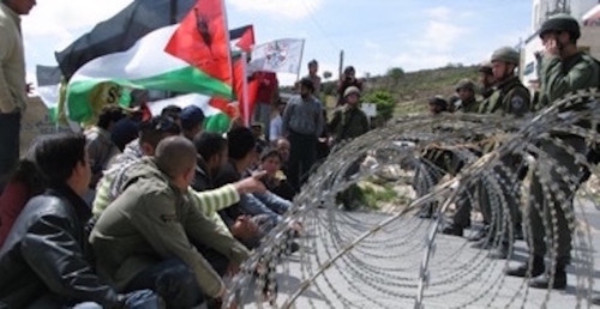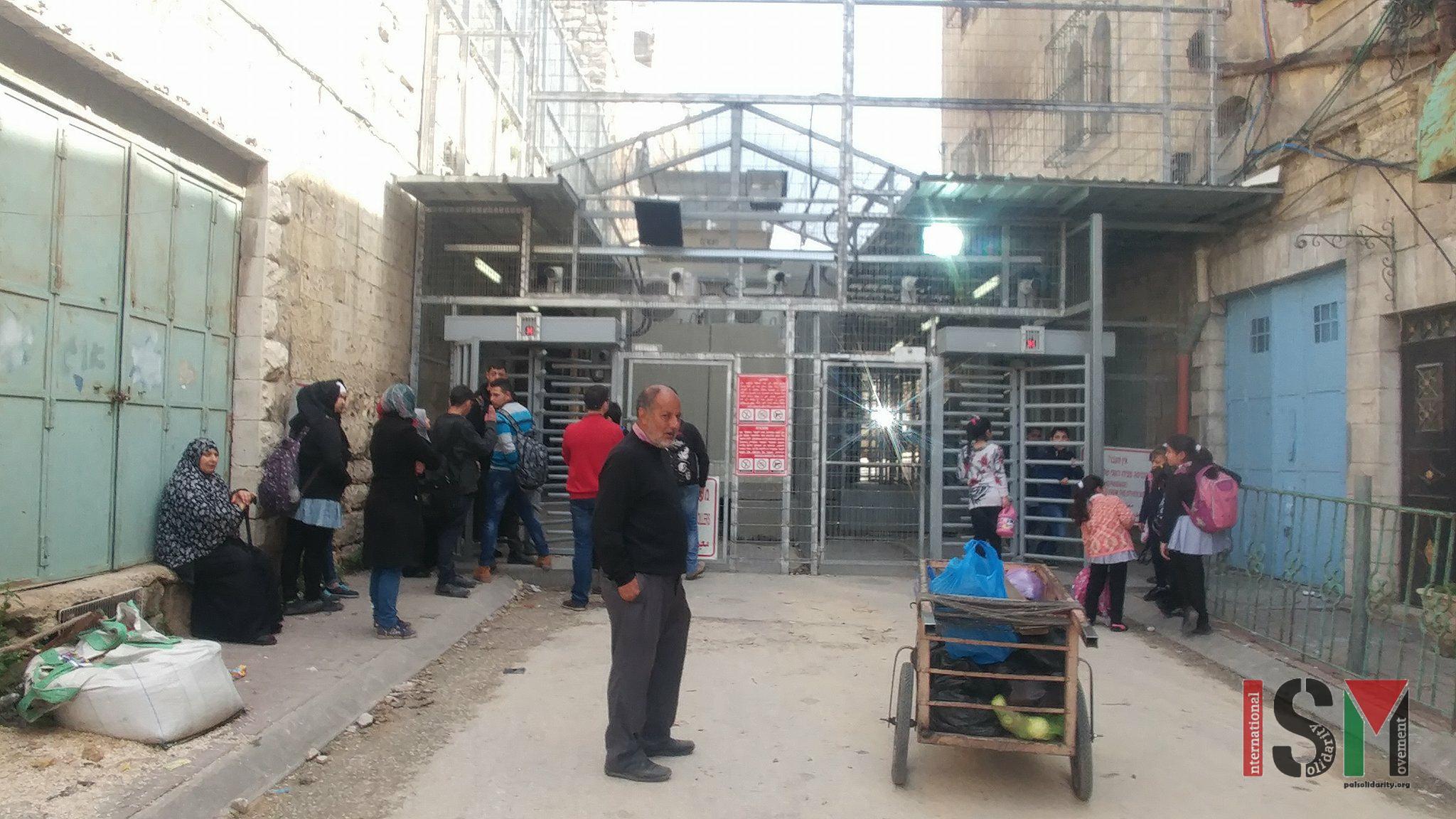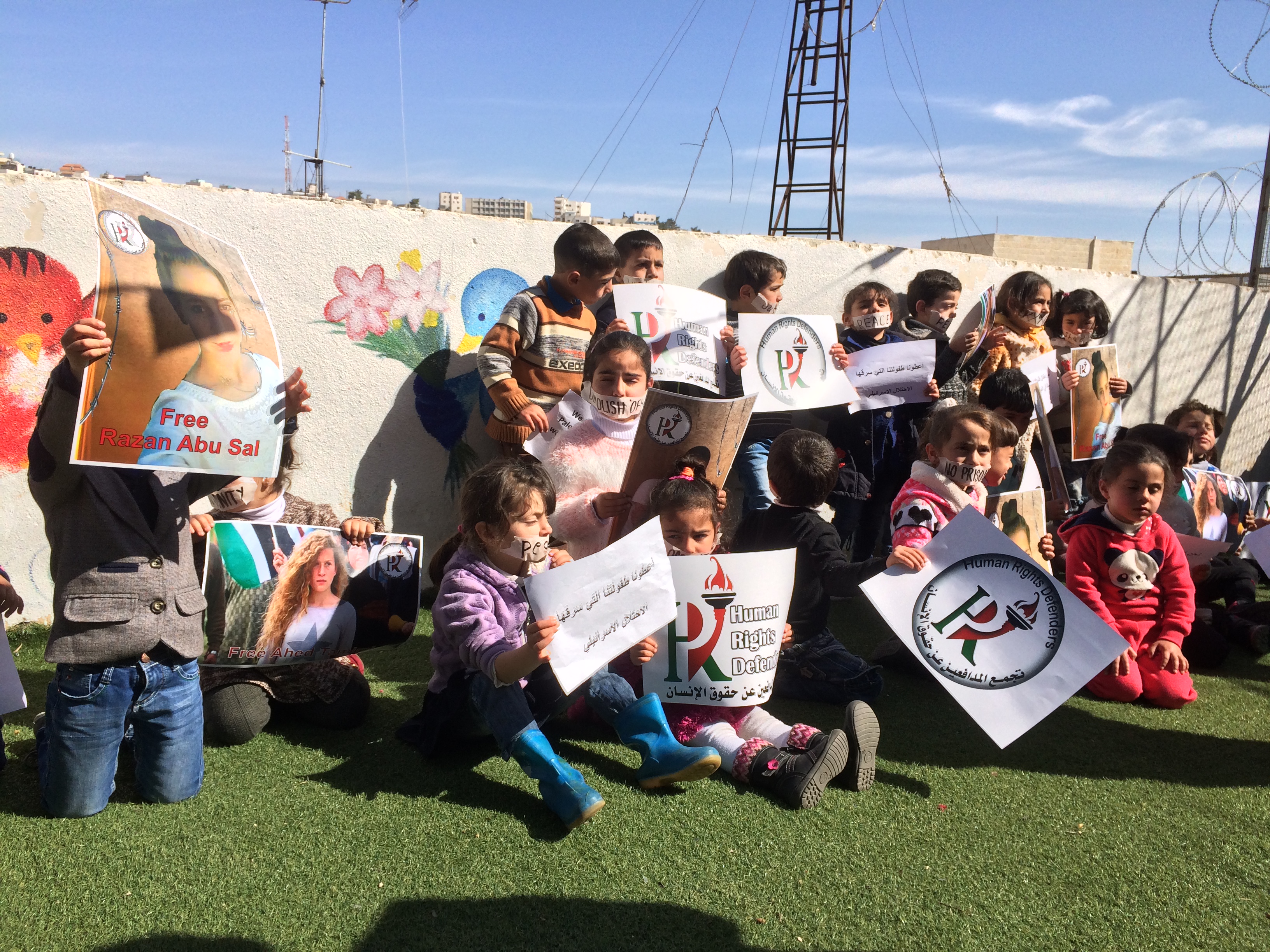Category: Press Releases
-
ISM Tours USA : Bring the Palestinian resistance to speak to your community
Are you ready to take your activism for Palestine to the next level? In 2002, the International Solidarity Movement grabbed world attention by bringing volunteers from around the world to defend Palestine through nonviolent resistance. They stayed with resistance fighters in the Nativity Church in Bethlehem. They brought medical supplies to the besieged Palestinians in the ancient…
-
Israeli soldiers lockdown checkpoints for jewish settler parade, Purim
Israeli soldiers close checkpoint 56 leading to the neighborhood of Tel Rumeida for an hour this morning, restricting the freedom of movement even further for Palestinian residents. Israeli settlers were celebrating the jewish holiday Purim as they paraded down Al Shuhada street and gathered outside Al Ibrahimi mosque playing loud music and drinking alcohol. Shop owners…
-
Shuhada Kindergarten Stands in Solidarity with Child Prisoners
Human Rights Defenders organised a solidarity campaign with Palestinian Child prisoners in the Shuhada St Kindergarten on Sunday February 4, 2018. The Kindergarten is close to the Cordoba school in the H2 Israeli controlled area of al Khalil (Hebron). Both the school and the kindergarten have to access Shuhada St. down some stairs through a…



